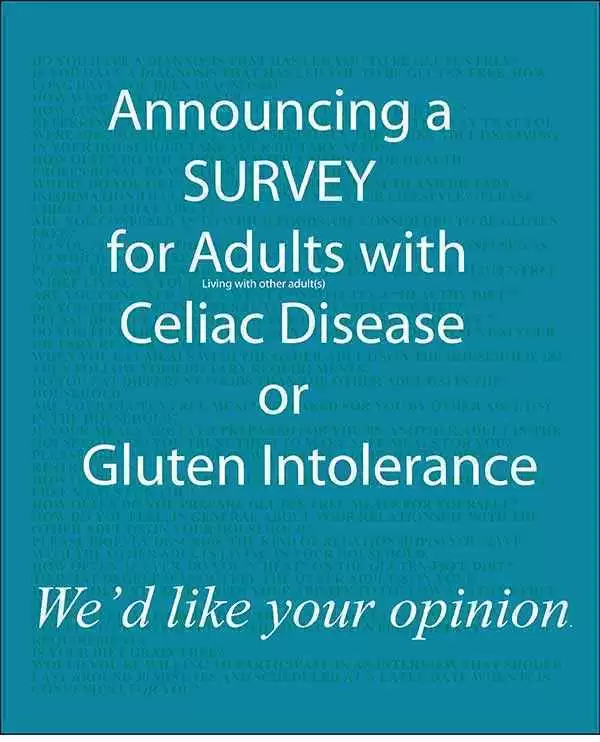
Celiac.com 05/16/2017 - A number of studies have indicated that kids with celiac disease face an increased risk for mood disorders, anxiety and behavioral disorders, ADHD, ASD, and intellectual disability. A new study by a team of researchers in Sweden puts it more precisely. They put the increased risk for psychiatric disorders in children with celiac disease at 1.4-fold over kids without celiac disease.
The research team assessed the risk of any type of childhood psychiatric disorders, including psychosis, mood, anxiety, and eating disorders, psychoactive substance misuse, behavioral disorder, ADHD, ASD, and intellectual disability, in children aged 18 and younger, along with their siblings. The researchers included Agnieszka Butwicka, MD, PhD, of the department of medical epidemiology and biostatistics, Karolinska Institute, Stockholm, Sweden, and colleagues.
Celiac.com Sponsor (A12):
For each of the 10,903 children with celiac disease, the research team randomly selected 100 non-celiacs from the general population. These control subjects were then matched by gender and year and country of birth. For each of the 12,710 siblings of celiac disease subjects, the research team randomly assigned 100 healthy control siblings from the general population. These were also matched by gender, year and country of birth of both siblings. Both sets of siblings were required to be free of celiac disease to age 19.
The researchers reviewed histological data on patients who showed villous atrophy in small intestine biopsy specimens between 1969 and 2008, and equated villous atrophy with celiac disease.
In the main cohort study, the researchers estimated the risk for any psychiatric disease, as well as specific psychiatric disorders (ie, mood, anxiety, eating, and behavioral disorders, as well as neuropsychiatric disorders such as attention deficit hyperactivity disorder (ADHD), autistic spectrum disorders (ASD), and intellectual disability) in children with celiac disease, compared with general population controls. They used sibling analyses to assess whether underlying familiar factors could account for the associations. As a comparing factor, they compared the risk for psychiatric disorders in the siblings against the risk in siblings of the general population.
The team conducted both univariate and multivariate analyses, adjusting for maternal/paternal age at the child's birth, maternal/paternal country of birth, level of education of highest-educated parent, and the child's gestational age, birthweight, Apgar score, and history of psychiatric disorders prior to recruitment.
During follow-up, 7.7% of children were diagnosed with a psychiatric disorder. A positive association was found in the first univariate analysis between celiac disease and any psychiatric disorder, which remained even after the researchers adjusted for maternal/paternal age at childbirth and country of birth, parental education level, and child's gestational age, birthweight, Apgar score, and previous history of psychiatric disorders.
The overall prevalence of psychiatric disease in the entire sample celiac disease patients was about 7%. That number remained steady in the 10 years after biopsy. However, once the researchers analyzed the findings by cohort, they found that rates of psychiatric disorders had actually increased 8-fold over that 10-year period.
The siblings of celiac disease patients showed no increased risk for any psychiatric disorder. The study showed that psychiatric disorders "may precede a diagnosis of celiac disease in children." The research team called this finding "important." They write that their study also offers "insight into psychiatric comorbidities in childhood celiac disease over time." The study showed that children with celiac disease definitely faced an elevated risk for specific psychiatric disorders, including mood disorders, anxiety disorders, eating disorders, behavioral disorders, ADHD, ASD, and intellectual disability.
Although the study showed that patients with celiac disease are more likely to have prior psychiatric disorders, the team notes that they have yet to determine "the mechanisms underlying the association between celiac disease and psychiatric orders." The fact that the siblings of celiac disease patients showed no increased risk of psychiatric disorders indicates that these may be an "effect of celiac disease per se rather than common genetic or within-family environmental factors," the researchers add.
The researchers conclude that their study "underscores the importance of both mental health surveillance in children with celiac disease and a medical workup in children with psychiatric symptoms."
This study offers yet another piece in the complex puzzle that is celiac disease. It emphasizes the need for doctors and parents to remain on the lookout for potential psychiatric issues when dealing with children who have celiac disease.
Source:





.webp.221482f478bea455a2dab99606196255.webp)






Recommended Comments
There are no comments to display.
Create an account or sign in to comment
You need to be a member in order to leave a comment
Create an account
Sign up for a new account in our community. It's easy!
Register a new accountSign in
Already have an account? Sign in here.
Sign In Now